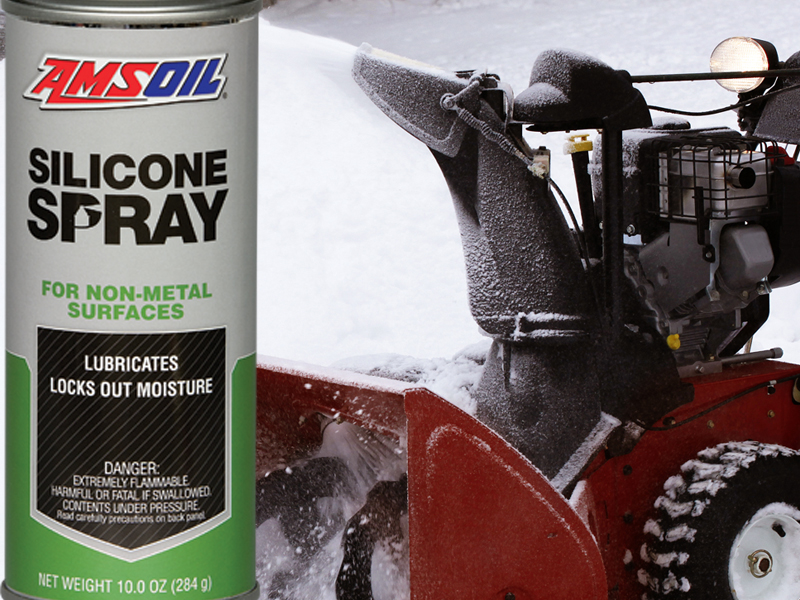How Often Should I Change Oil On Briggs Animal Running Methanol
What Motor Oil Should I Apply in a Methanol Engine?
Frank wants to know, via our Facebook page, the pros and cons of using mineral oil versus synthetic oil in...

Frank wants to know, via our Facebook folio, the pros and cons of using mineral oil versus synthetic oil in a methanol-fueled engine.
Thank you for the question, Frank.
What is methanol?
For those who already know, carry with me.
Methanol is an alcohol-based fuel that tin can be manufactured from a wide range of feedstocks. To make it, y'all get-go need to make synthesis gas, which is a mixture of CO, CO2 and hydrogen gas. While natural gas is most widely used, methanol offers the flexibility  of being produced from annihilation that is, or always was, a plant. That includes biomass, woods, municipal waste and fifty-fifty cow manure.
of being produced from annihilation that is, or always was, a plant. That includes biomass, woods, municipal waste and fifty-fifty cow manure.
Why employ methanol?
There are several reasons to ability an engine with methanol.
- Compared to gasoline, it can handle more pressure before igniting, which allows for a higher compression ratio. It also lets y'all run your turbocharger or supercharger at a higher boost pressure level. This adds upwards to a more efficient and powerful engine without as much risk of engine knock or detonation.
- More power. Although gasoline is more than energy-dense, y'all tin can run a more than rich air-to-fuel ratio with methanol. While a gas engine makes ideal power at an air-to-fuel ratio around 12.five:ane, a methanol engine makes optimum power at ratios as rich equally 4:i. This means you're burning about three times more fuel per power stroke, resulting in increased engine power.
- Methanol absorbs more heat than gasoline, making it perfect for extremely hot-running supercharged or turbocharged engines.
For these reasons, some racers and competitors lean toward methanol in their competition engines.
There must be a grab
Of course; there always is.
Compared to gasoline, methanol produces decreased fuel economic system. This mpg arrears isn't a large deal in competition engines designed solely for maximum power or torque, only it's terrible in your grocery getter.
Plus, methanol is highly corrosive, meaning it'll eat fuel lines if left sitting also long. Once more, competition engines plow fuel over quickly, so it's not a large deal at the racetrack. Merely information technology could wreak havoc on your grandma's Buick Century that sits for weeks at a time.
That brings us to oil
Methanol engines are notorious for fuel dilution, particularly when they're cold.
Imagine y'all start the engine in the pits to get ready for a heat race. The piston hasn't fully expanded and sealed confronting the cylinder wall via the rings. The extra play allows ample space for the methanol-rich fuel/air mixture to wash past the rings and contaminate  the oil. This is considering, as noted early on, the engine is burning a much higher ratio of fuel than a gasoline engine. There's simply more than fuel to dilute the motor oil. Plus, at startup, the engine uses fifty-fifty more fuel than usual to warm up.
the oil. This is considering, as noted early on, the engine is burning a much higher ratio of fuel than a gasoline engine. There's simply more than fuel to dilute the motor oil. Plus, at startup, the engine uses fifty-fifty more fuel than usual to warm up.
High dilution reduces the oil'due south viscosity, and viscosity is the most important holding of oil when it comes to wearable protection. Say you're using a 20W-fifty oil. High dilution tin can finer make it a 10W-40 oil, compromising wear protection.
In these cases, the oil's film strength is the final defense confronting metal-to-metallic contact, and college-quality base oils – typically found in synthetics – have a straight correlation to wear protection.
Bottom line…
Employ a high-quality synthetic to deliver the required wear protection for methanol engines decumbent to high fuel dilution.
A counter statement might be, "Well, I change oil every few races, so what difference does it make? Isn't a cheap conventional oil sufficient?"
Not necessarily. Your engine produces significant heat and is exposed to tremendous stress every fourth dimension yous utilise information technology. Synthetic oil protects longer. It'south going to do a better job from race to race withstanding dilution and delivering stiff pic strength to protect against vesture.
You accept to ask yourself, what's it worth to protect my expensive racing or competition engine?
If you're going to drop several yard dollars to eke as much power out of an engine as the rules allow, why skimp on motor oil but to salve a couple bucks?
Shop AMSOIL Synthetic Racing Oils
More like this



Source: https://blog.amsoil.com/what-motor-oil-should-i-use-in-a-methanol-engine/
Posted by: thomasthadvating.blogspot.com

0 Response to "How Often Should I Change Oil On Briggs Animal Running Methanol"
Post a Comment